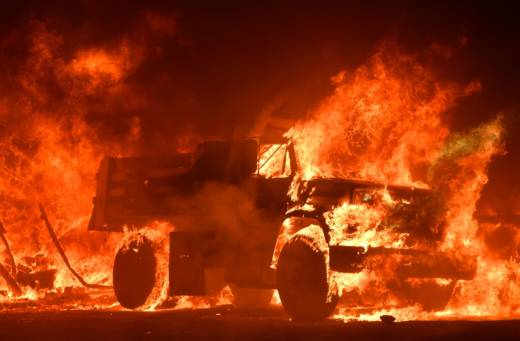A bipartisan group of lawmakers that’s been working for weeks to craft legislation in response to the devastating wildfires sweeping through California came to a compromise plan late Tuesday. It’s aimed at both protecting utility ratepayers from footing the bill for billions of dollars in damage caused by electrical equipment — and ensuring that PG&E and other utilities don’t go bankrupt.
It would do that by letting PG&E issue bonds to pay for damage caused by last year’s North Bay wildfires while creating a commission to weigh utility liability in fires that started this year.
“Make no mistake about it, it’s not perfect,” said state Sen. Bill Dodd, D-Napa, chairman of the Wildfire Preparedness and Response conference committee. “We ran out the clock. I think what we have here before us represents the best that we can do as a committee today.”
The bill, released just in time to meet a deadline for the legislative session that ends this week, also would aim to curb future blazes by directing an annual $200 million in state funding toward forest management, fire prevention and fuel reduction.
The rush to advance bill language out of the conference committee resulted in a final report littered with handwritten notes and edits.
